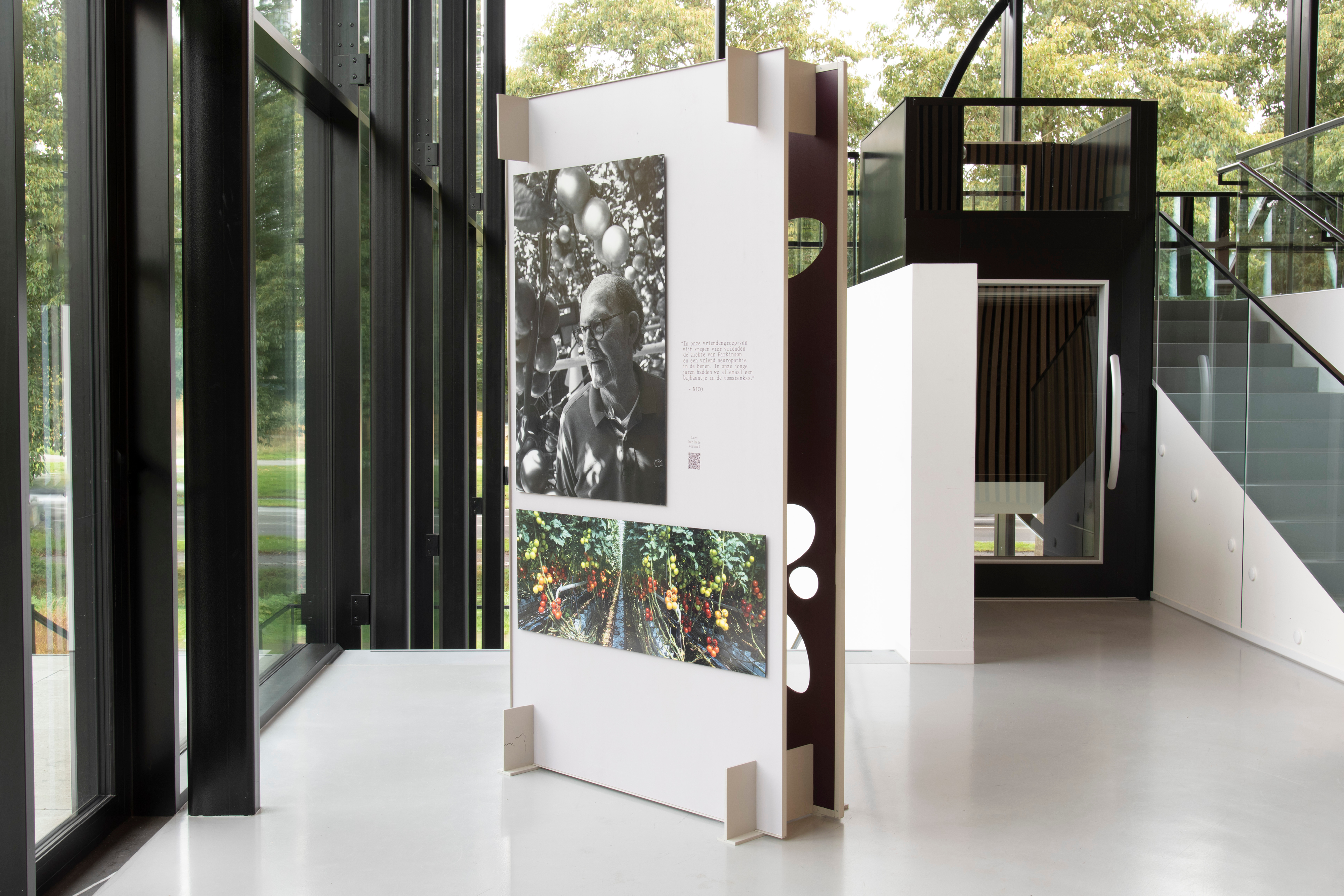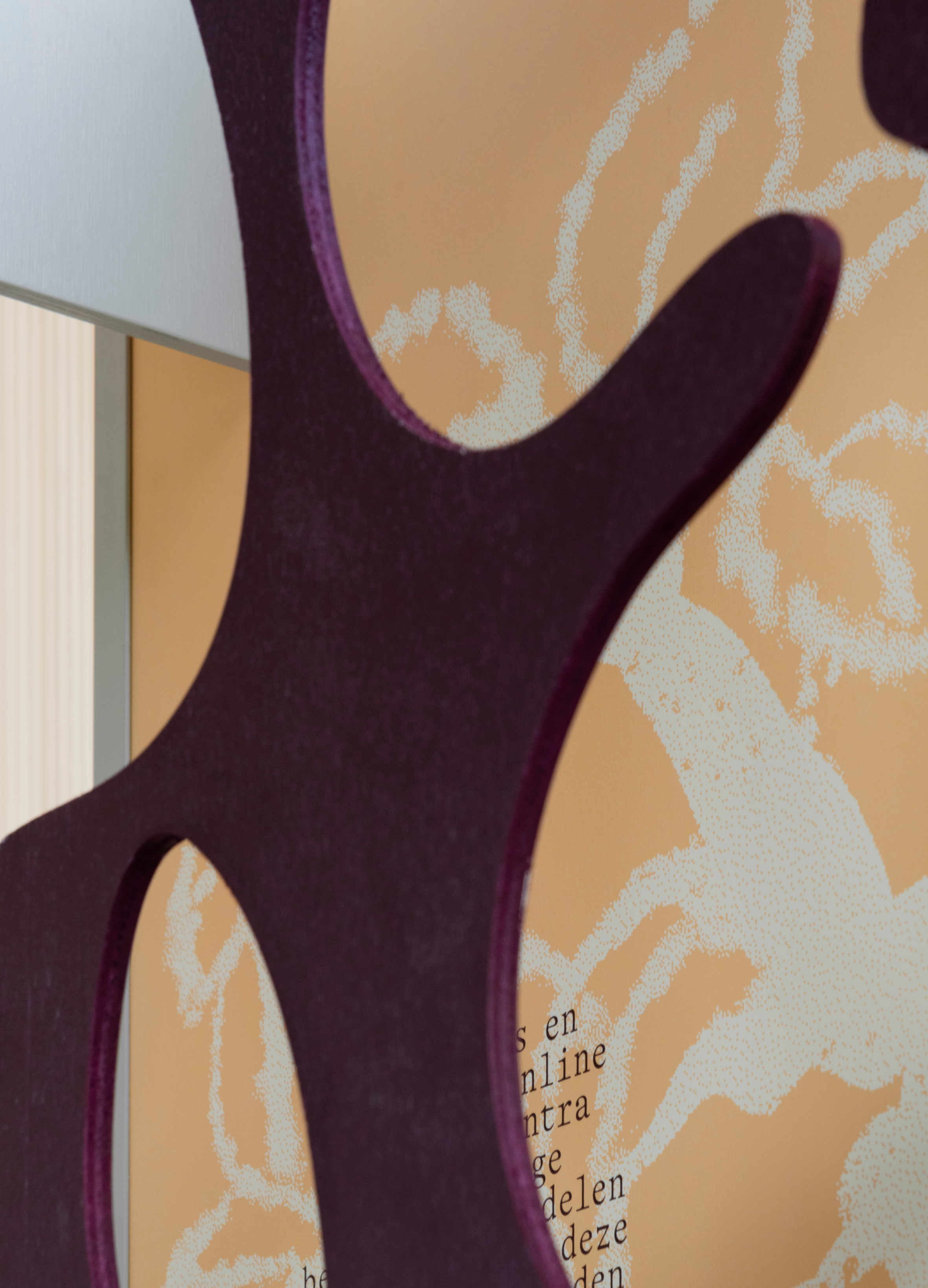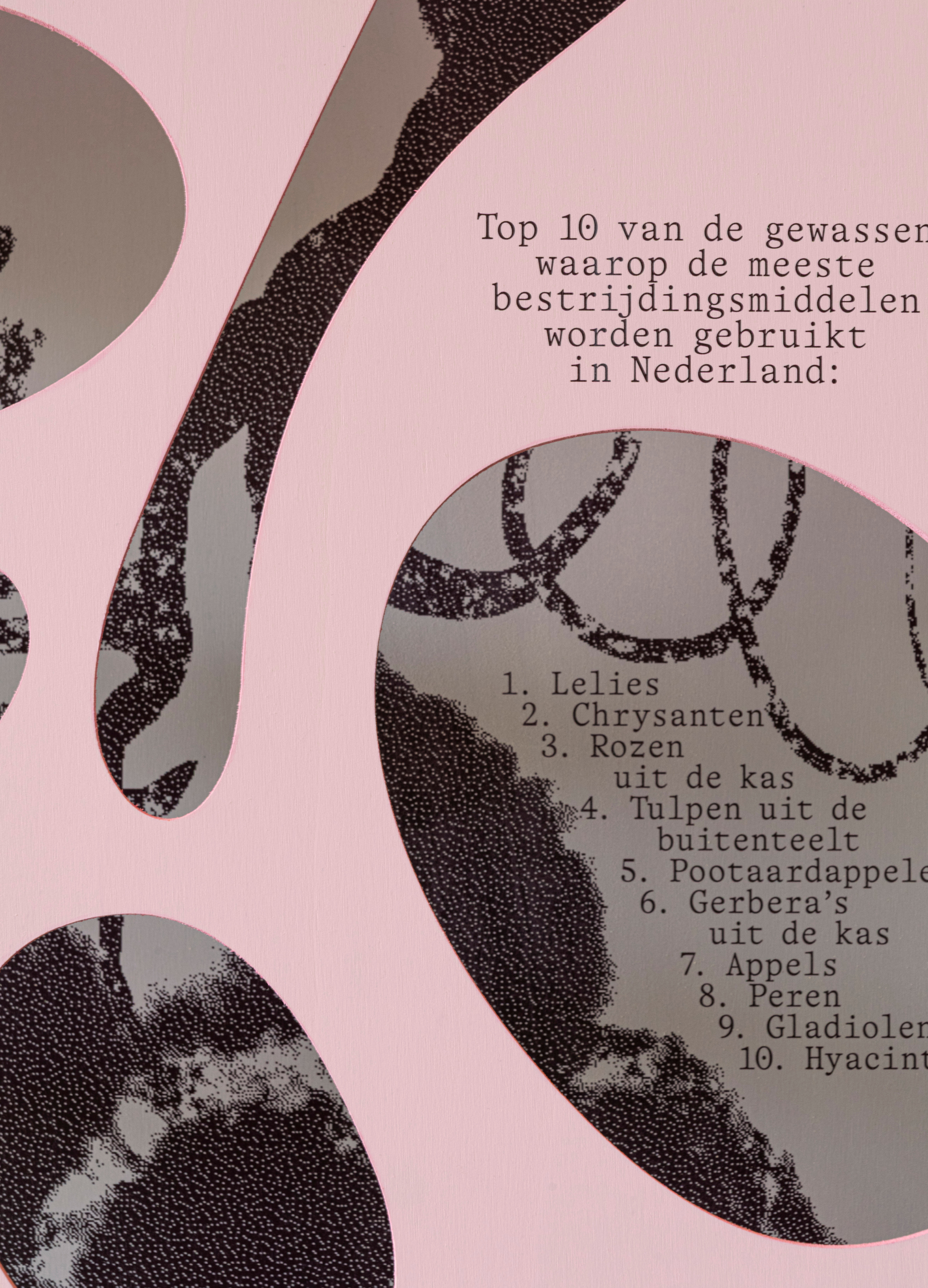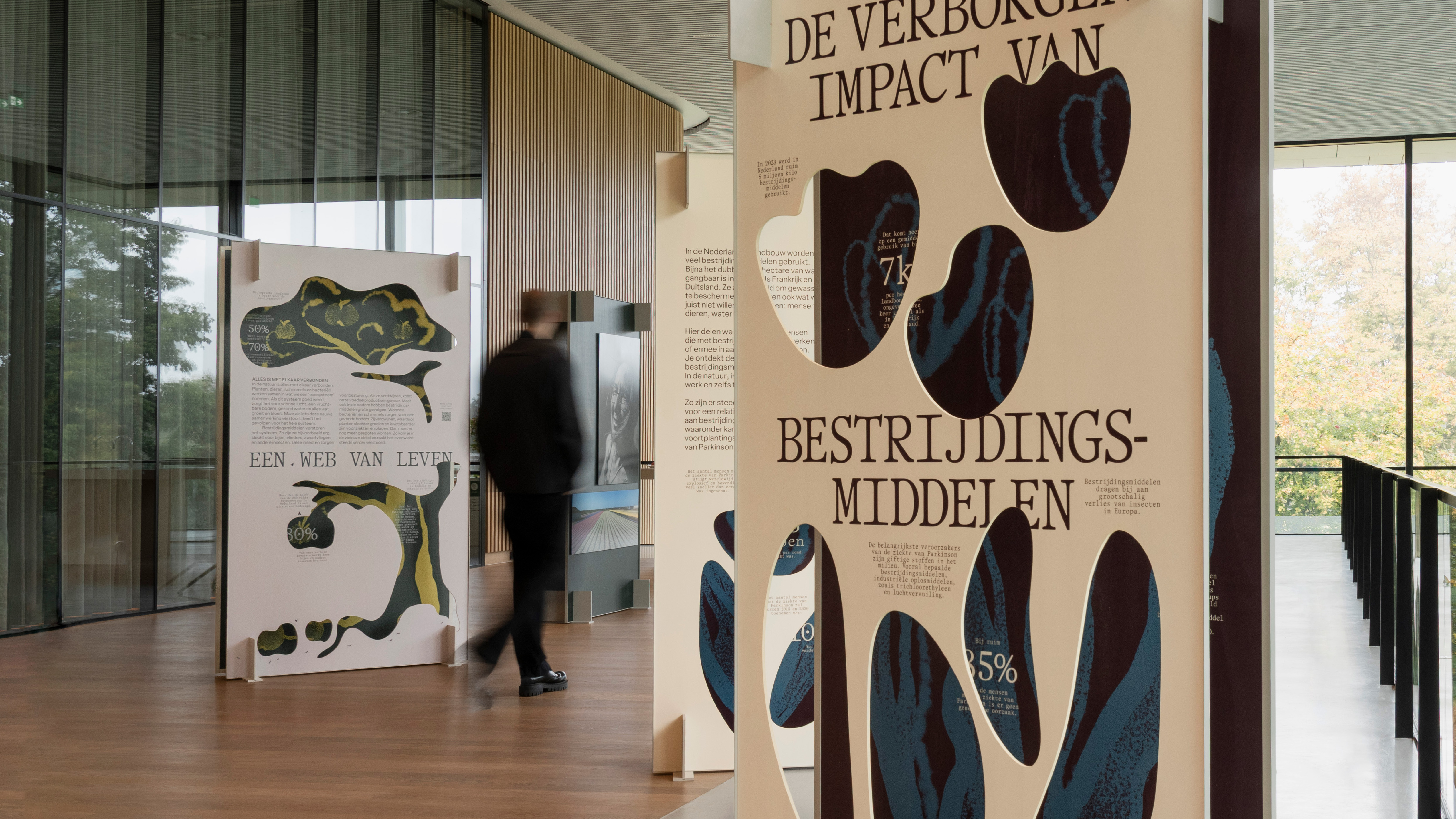
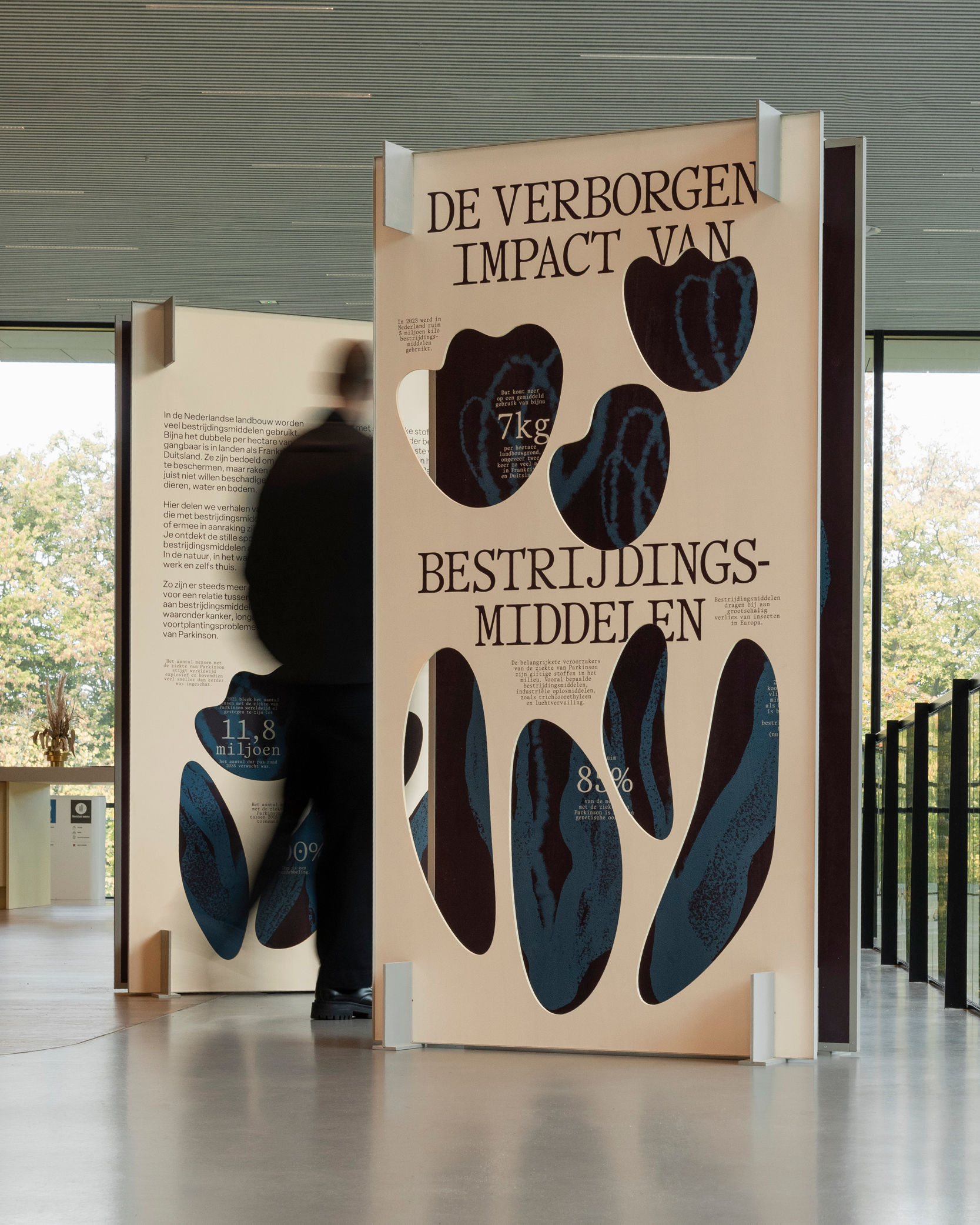
Always happy to
meet new people!
For general inquiries
hello@lmnop.works
Achter de Dom 14
3512 JP, Utrecht


Dutch agriculture uses a lot of pesticides to protect crops. But, they also damage what we want to care for: people, animals and the environment. In the travelling exhibition ‘The hidden impact of pesticides’, we share stories of people who work with pesticides or have gotten in touch with them one way or the other. You discover the hidden traces that pesticides leave behind.
Exposure to harmful output in our environment, especially pesticides, is the main cause in the rapid growth of people diagnosed with Parkinson's disease. How to visualise this invisible threat and make it tangible for a wide audience?
In our spatial design, we were looking for a balance between scientific nuance and a visually striking aesthetic that draws the visitor in. The use of double-sided panels reveals the layers of the story: the hidden impact of pesticides. Organic cut-outs provide glimpses of illustrations that accompany the data of the invisible danger.
The exhibition travels through The Netherlands and is designed and produced in the most sustainable way possible. Taking into account the material, printing techniques, finishing and durability. The panels are modular, easy to assemble and transport, so that the exhibition can be displayed in as many locations as possible.
The result is an exhibition with impact that can inform a large and diverse audience and invites dialogue about nature, society and health.
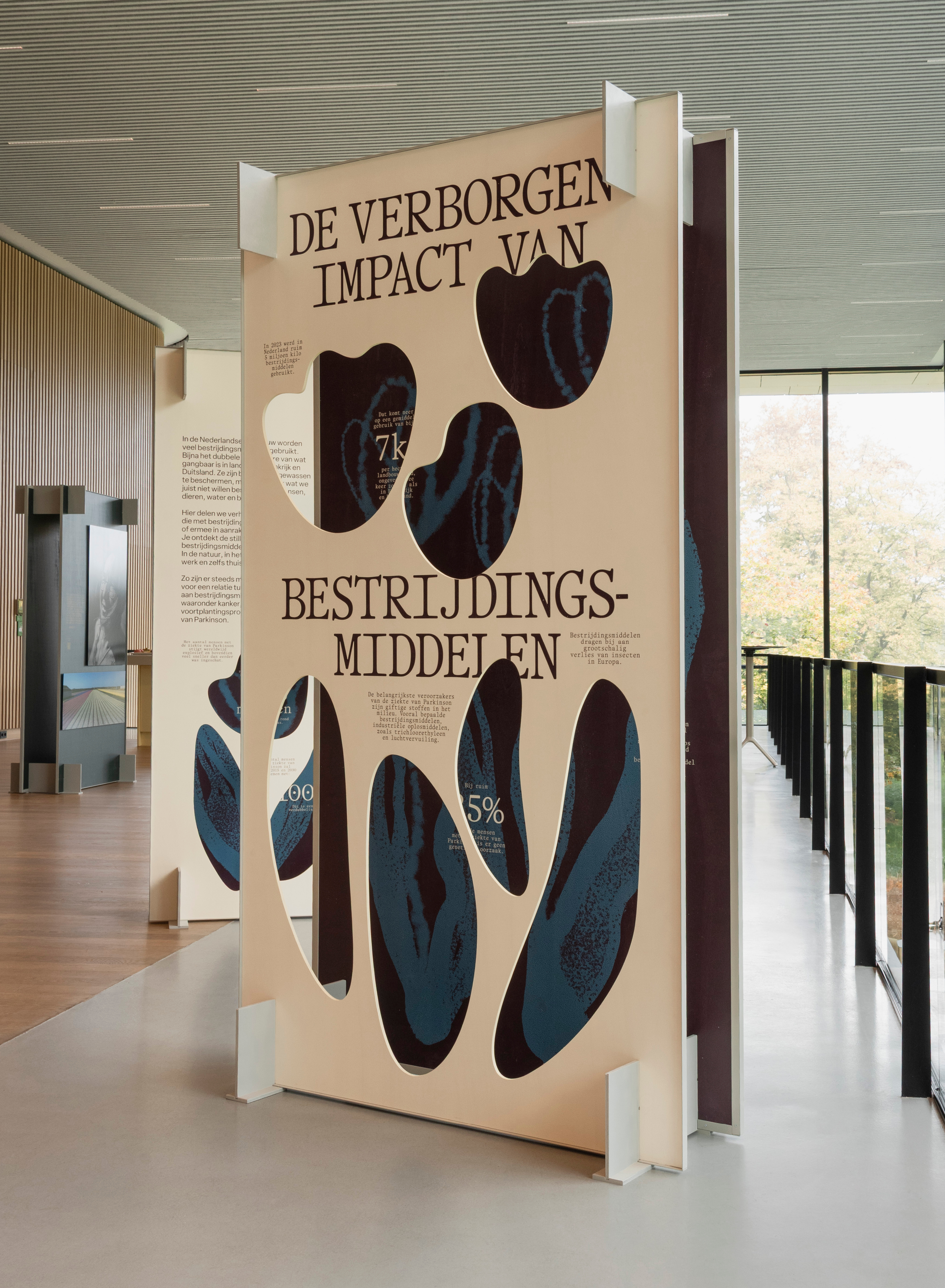
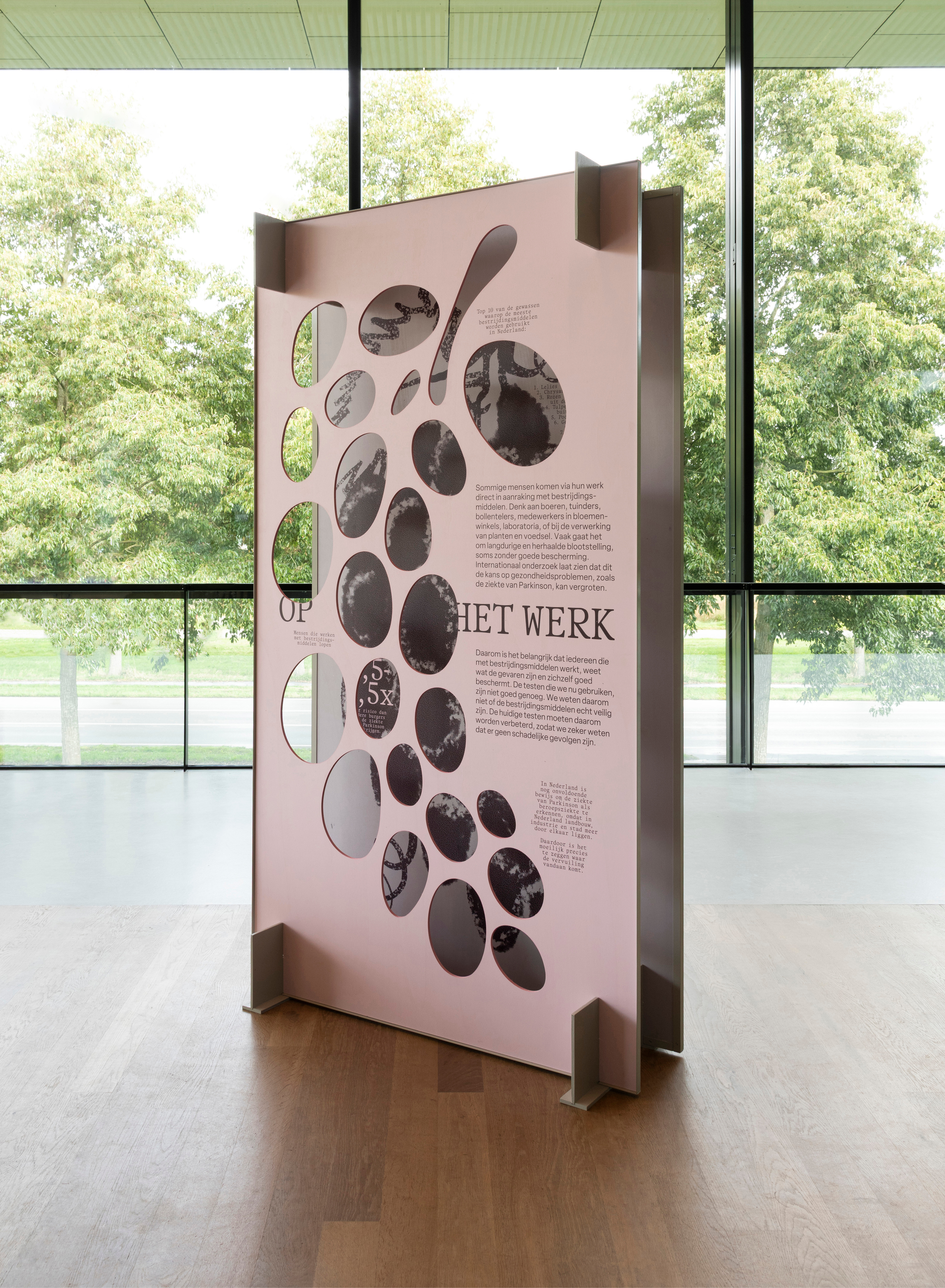
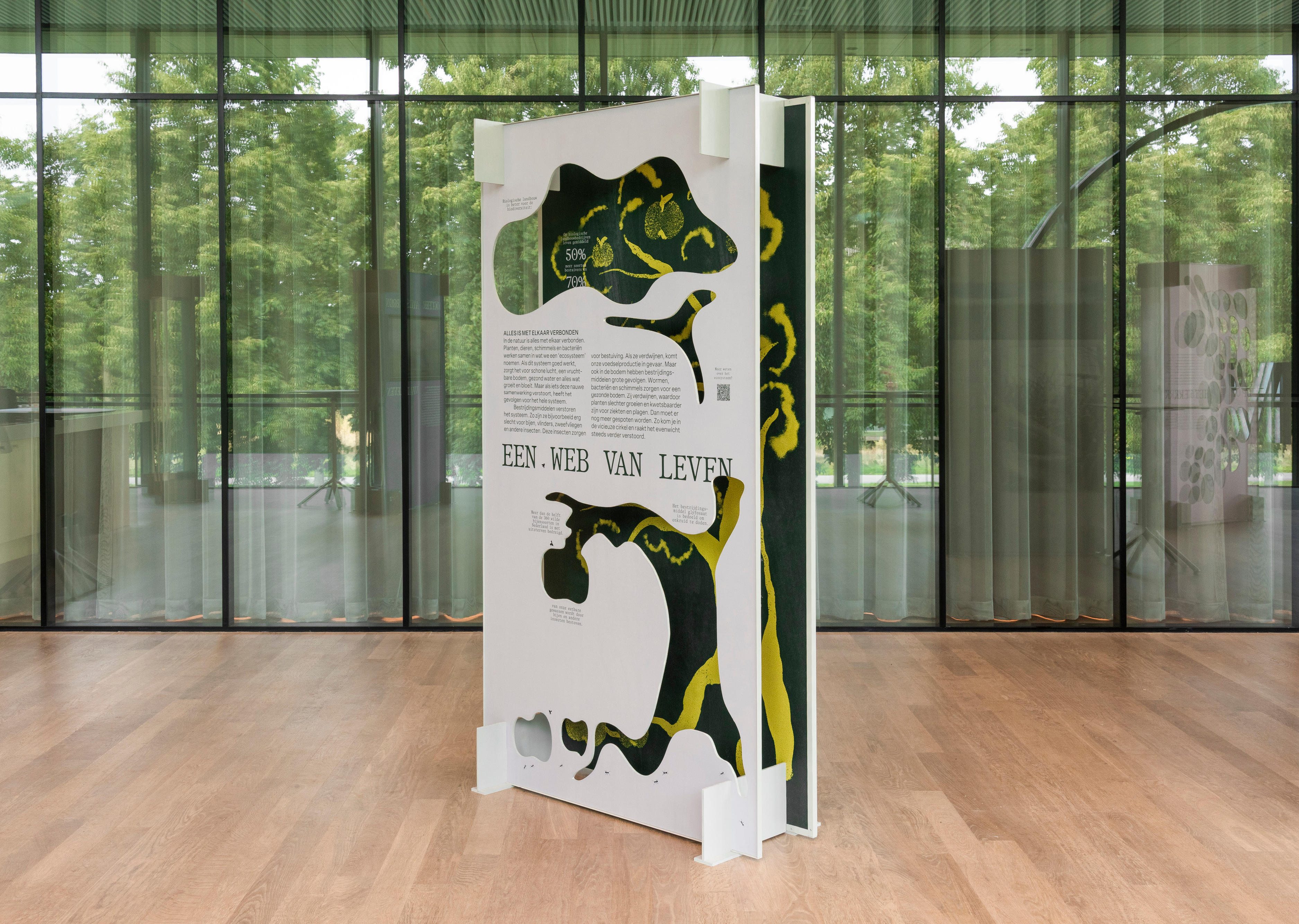
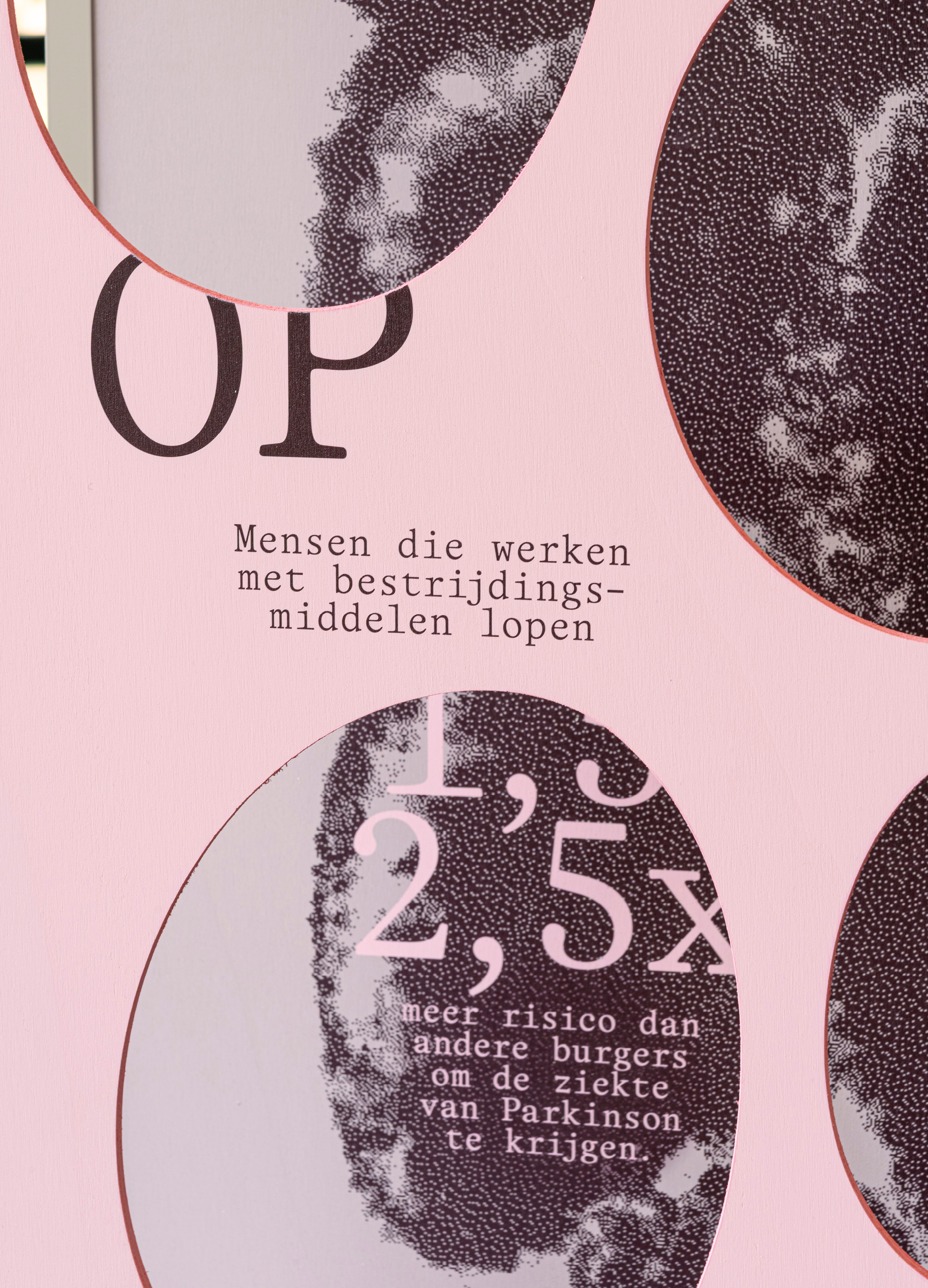
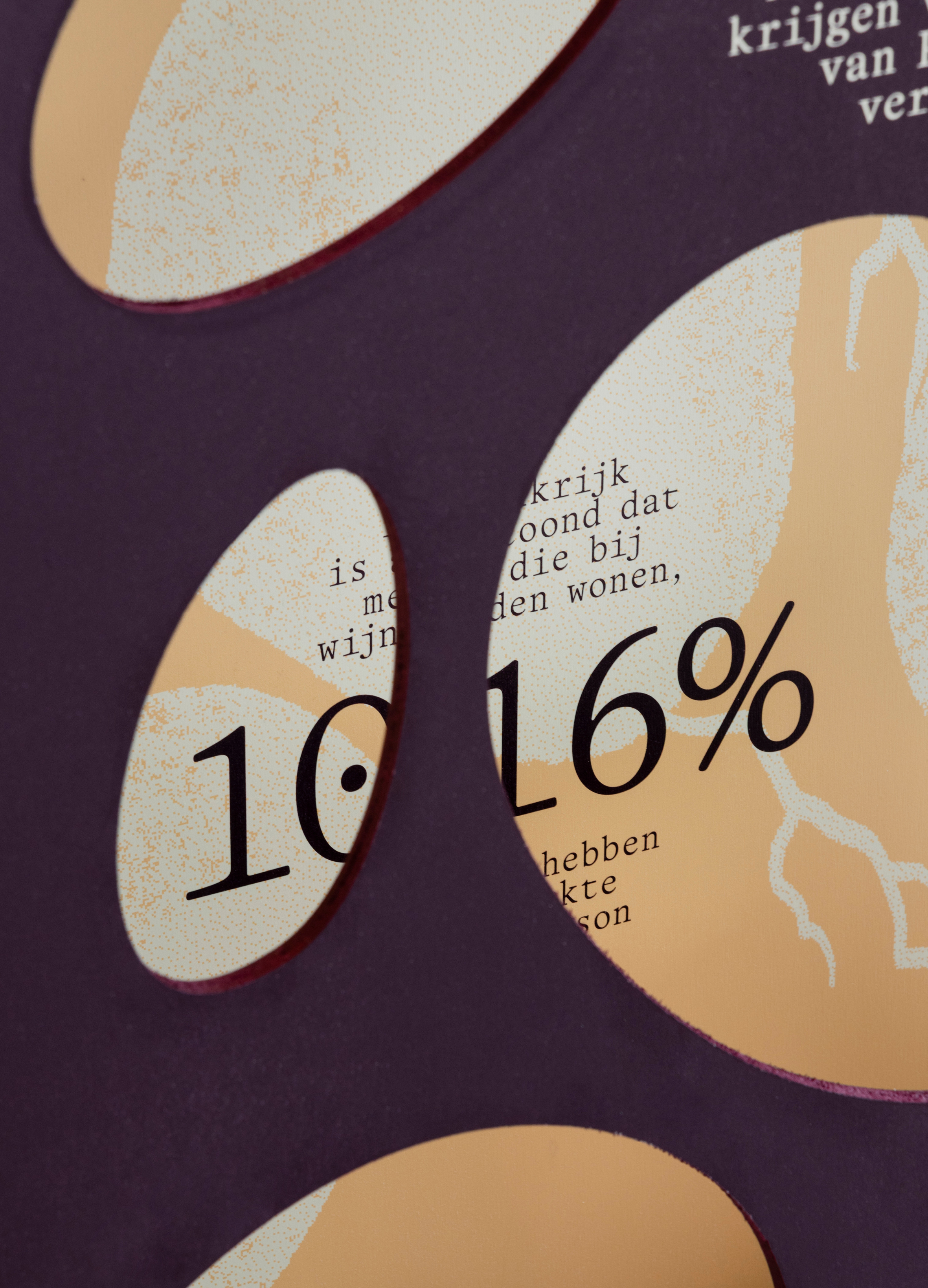
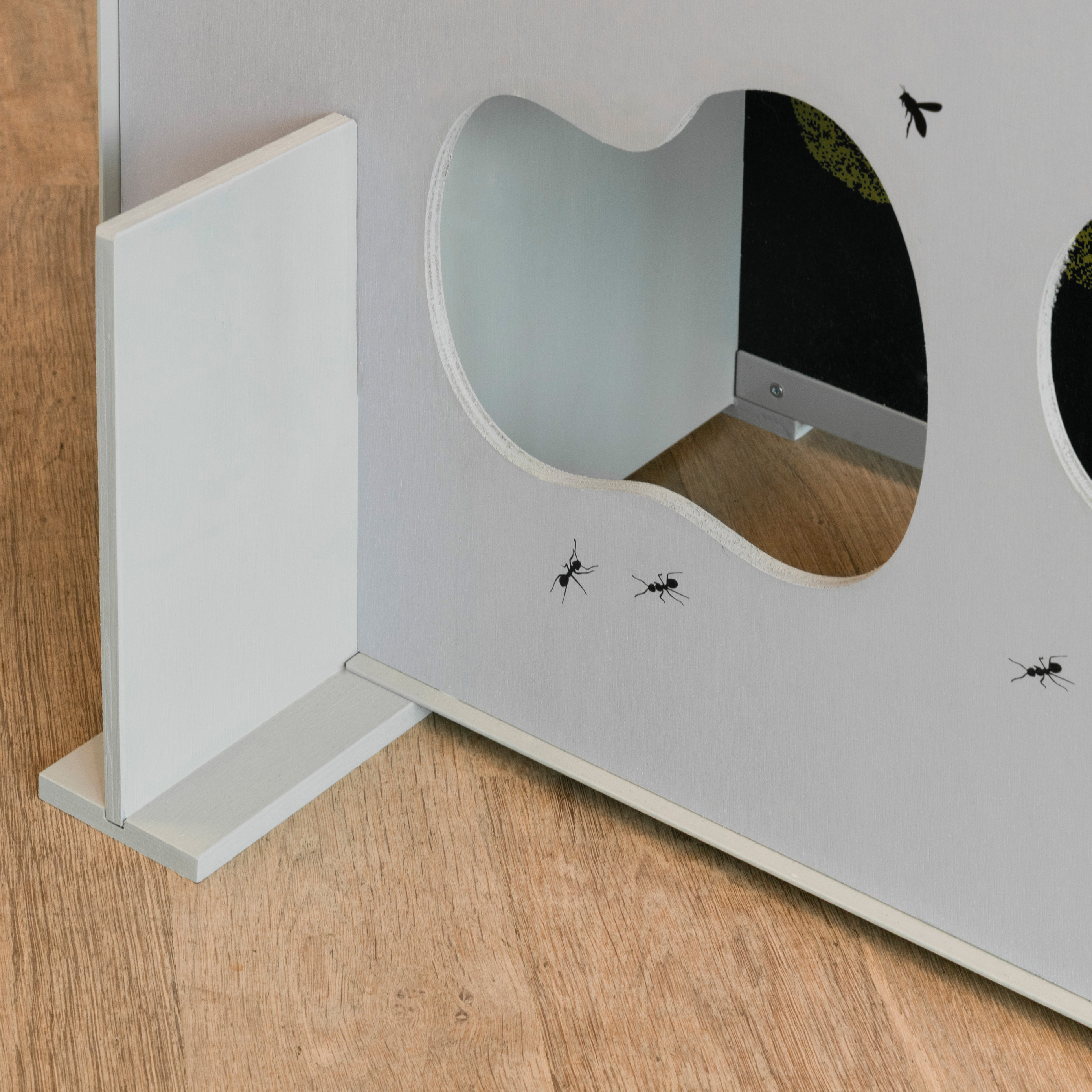
In 2023, over 5 million kilograms of pesticides were used in The Netherlands. / This equates to an average use of nearly 7 kilograms per hectare of agricultural land, approximately twice as much as in France and Germany.
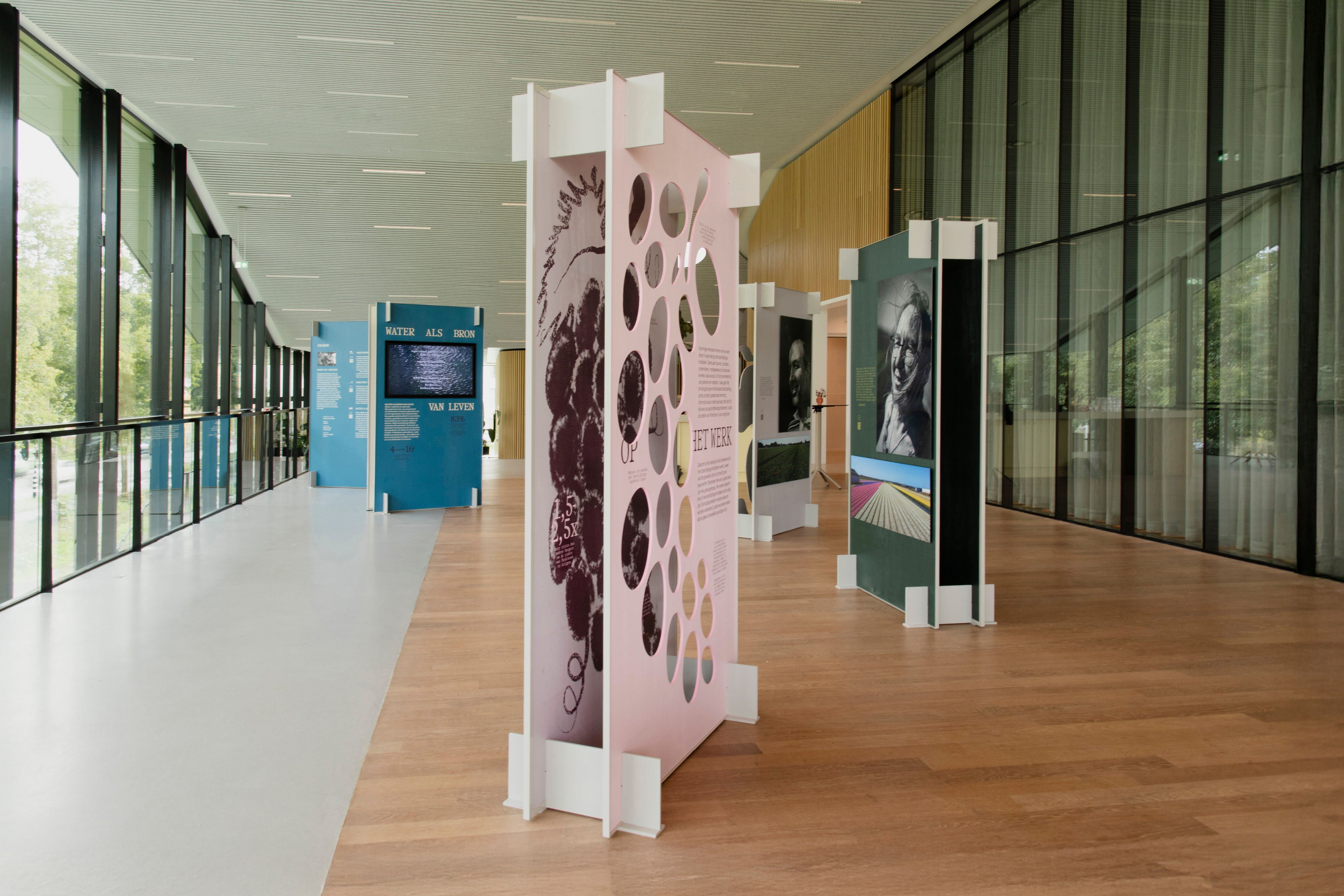
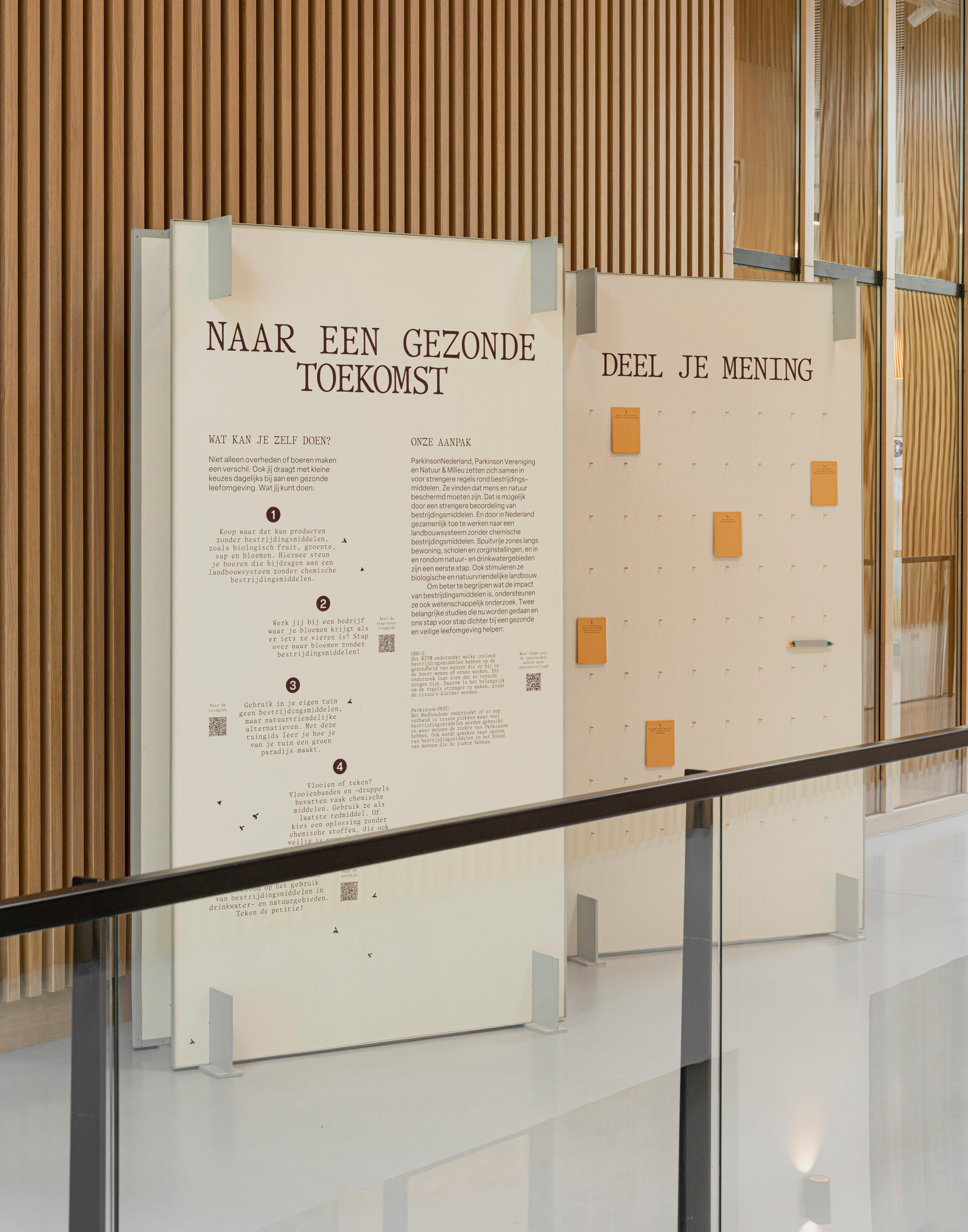
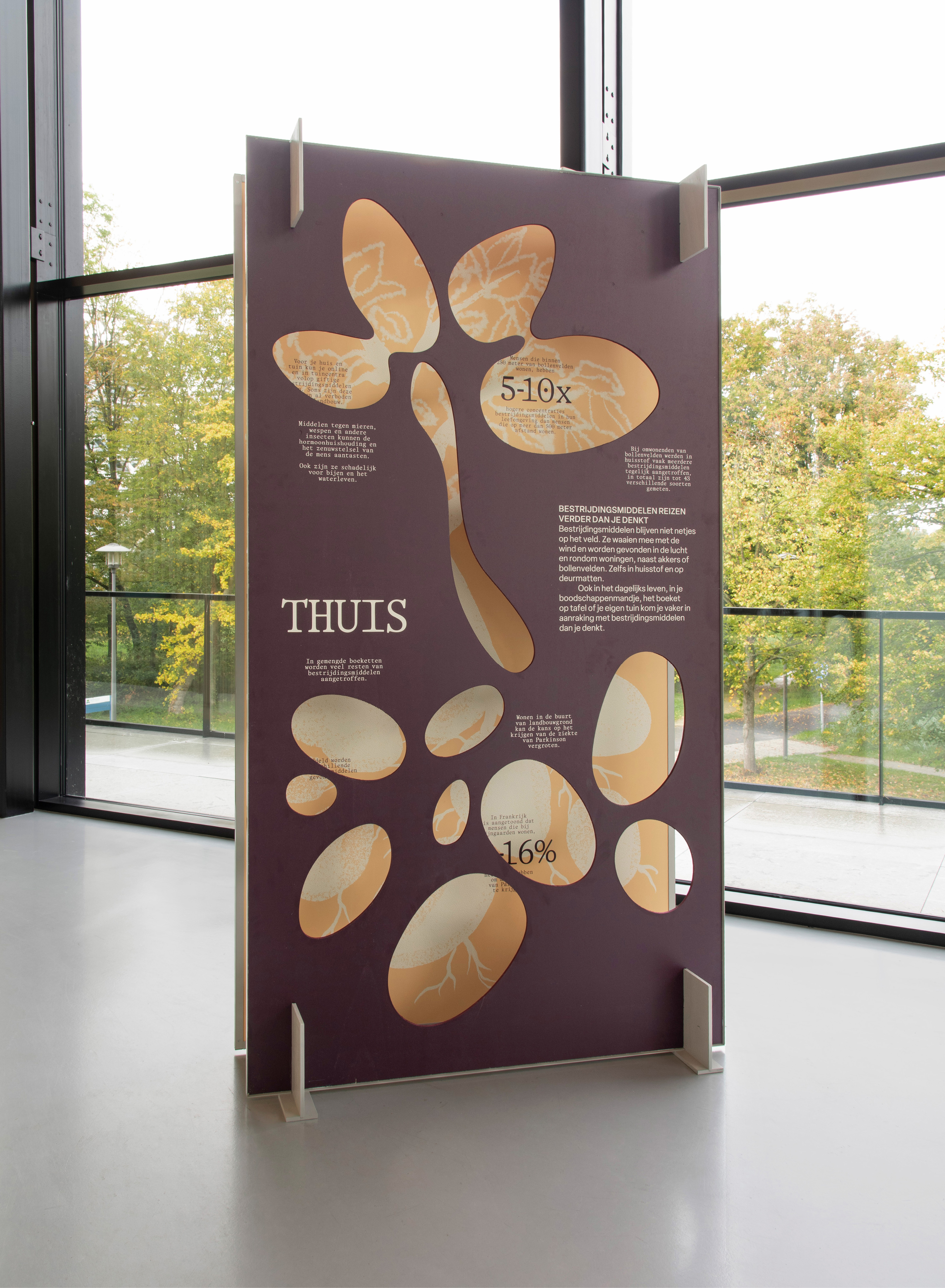
The number of people with Parkinson’s disease will increase by 100% between 2015 and 2030. This represents a doubling of the number of cases.
